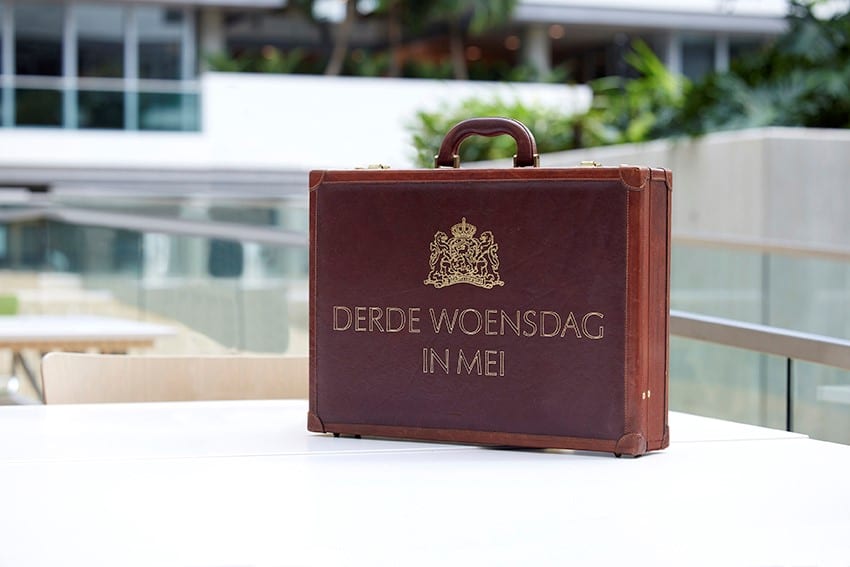Concerns about healthcare under a new cabinet
After a turbulent political year, the summer and formation recess has really begun. In the past year, no sector has been in the news as much as the health sector. Whether it was combating the COVID-19 crisis, rising staff shortages, the ageing population, increasing medicine shortages or restrictions on access to new innovations and specialist care.
The relative calm of the summer offers the perfect opportunity to look ahead to the new political year. The formation of a new cabinet and the accompanying coalition agreement are eagerly awaited. In this blog, Mitchell van Bekkum & Maaike van Vliet describe what we can already expect from future healthcare policy.
Requests from the field
The coalition formation has been simmering for several months. Organisations try in various ways to influence what will eventually end up in the coalition agreement. Particularly in the healthcare sector, which faces major challenges, there are many parties that have an opinion on healthcare policy. Since the formation of the coalition agreement started, many letters to the formateur, studies, opinion articles and stakeholder coalitions have been published to draw attention to their solutions to these challenges. Although every organisation has a different solution, we can roughly identify three trends:
- The importance of prevention is underlined by (almost) all healthcare stakeholders. However, they do not always mean the same thing. Some organisations are in favour of a sugar tax or want to stimulate a healthy lifestyle by means of lifestyle interventions. Other parties attach more importance to the development or stimulation of medical interventions that lead to health gains. The question is therefore not if, but what about prevention will be included in the coalition agreement.
- Much attention is paid to the position and appreciation of the healthcare professional. It is important for medical specialists, nurses and other healthcare employees to have more of a say in the development of healthcare policy. Furthermore, an attractive working environment must be created in which the financial appreciation of employees is improved and lifelong learning is possible. The question is how to finance these wishes.
- The desire to stimulate innovations and apply them more often is frequently expressed. This concerns more far-reaching digitalisation, such as the transition to hybrid care, the application of eHealth and a secure national system for electronic data exchange. Innovative medicines and aids can also be admitted to the health care package more quickly.
Political plans
It is still unclear which parties will actually take their places at the formation table. Yet, based on the programmes of the possible coalition parties VVD (Conservative Liberals), D66 (Liberal Democrats), CDA (Christian Democrats), CU (Social Christian party), PvdA (Labour Party) and/or GroenLinks (Green Party), a cautious prediction can already be made. Do the above wishes correspond to their election programmes?
- Prevention is found in every election programme, especially when it comes to stimulating a healthy lifestyle. Various parties such as the VVD, D66, CDA, CU and PvdA see a role for health insurers. They can make preventive interventions more attractive by investing or including interventions in the package. VVD and D66 want to remove wrong production incentives in healthcare, taking into account the outcome for the patient. D66, CU, PvdA and GroenLinks support a sugar tax.
- The possible coalition parties express their appreciation for healthcare employees in their programmes and want to make working in healthcare more attractive by means of more autonomy and opportunities for advancement. Whereas the VVD wants to improve the financial position of healthcare employees by reducing income tax, all other parties want more money for this group on a structural basis.
- Investment in (digital) innovations is seen by the political parties as a means of supporting healthcare professionals and making healthcare more affordable and efficient. They want to invest in eHealth applications, apps and remote care. D66, CU and GroenLinks aspire to spend 3 per cent of the national income on research and innovations. The VVD, D66 and CDA emphasise the importance of innovative ecosystems and the development of key technologies. The VVD and CU also mention the importance of reliable and safe digital data exchange.
The major challenges in healthcare demand an active attitude from politicians and the healthcare field. It is therefore questionable whether a outline coalition agreement will benefit healthcare. There is a danger that a new cabinet will continue to do the poldering for the next four years, while the willingness of (care) parties can be used to arrive at decisive solutions together.
Wondering how your organisation can take advantage of the opportunities and threats of this formation period? Please contact us. We would be happy to think along with you.
Photo by Tara Winstead via Pexels






 Various politicians have tried to draw more attention to the ‘counterpart’ of Prinsjesdag. Former VVD (Conservative-Liberals) Member of Parliament Pieter Duisenberg plays an important role here. Together with Paul van Meenen (D66, Liberal-Democrats), he devised the so-called ‘Duisenberg method’, in which a standard method for monitoring the government was developed. According to Duisenberg, this is indispensable. “It ensures consistency in the constitutional task of Parliament, namely: to control the government.” He also points out the need for the inclusion of the method in the Rules of Procedure in the House of Representatives. “Accountability Day is not a sexy topic with which you as a member of parliament can get into the newspapers. In this way, a number of MPs are designated to be ‘obliged’ to carry out the method that year.”
Various politicians have tried to draw more attention to the ‘counterpart’ of Prinsjesdag. Former VVD (Conservative-Liberals) Member of Parliament Pieter Duisenberg plays an important role here. Together with Paul van Meenen (D66, Liberal-Democrats), he devised the so-called ‘Duisenberg method’, in which a standard method for monitoring the government was developed. According to Duisenberg, this is indispensable. “It ensures consistency in the constitutional task of Parliament, namely: to control the government.” He also points out the need for the inclusion of the method in the Rules of Procedure in the House of Representatives. “Accountability Day is not a sexy topic with which you as a member of parliament can get into the newspapers. In this way, a number of MPs are designated to be ‘obliged’ to carry out the method that year.”




